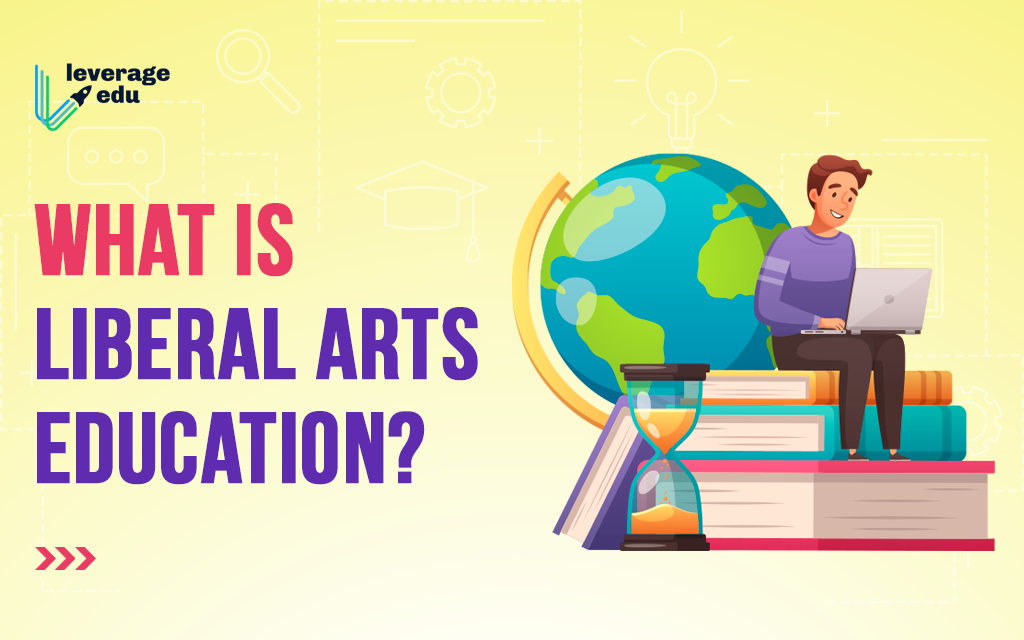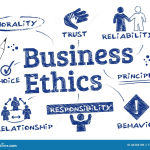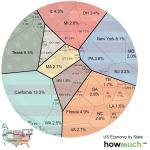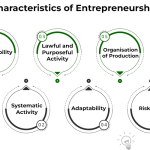Liberal arts education plays a crucial role in today’s fast-evolving job market, providing students with essential skills that transcend specific vocational training. This educational approach emphasizes critical thinking, creativity, and effective communication, which are invaluable in a wide array of careers. The importance of liberal arts cannot be understated; it nurtures the intellectual flexibility required to tackle unforeseen challenges in any field. Moreover, as we witness an increasing accessibility of liberal arts programs, it becomes clear that these degrees offer significant long-term value and contribute to personal and societal growth. Ultimately, the value of liberal arts education lies not only in securing a job but in shaping individuals who are thoughtful, informed citizens in a democratic society.
When discussing the essence of a liberal arts education, one might refer to it as a holistic education that encompasses a diverse array of subjects, including humanities, social sciences, and the natural sciences. This kind of education serves to cultivate well-rounded individuals who are equipped with the analytical skills necessary for engaging in complex discussions and problem-solving. In an era where the division between various fields of study is increasingly blurred, the interdisciplinary nature of liberal arts becomes particularly relevant. By exploring multiple perspectives, students gain a deeper understanding of cultural and societal dynamics, enhancing their ability to contribute positively to their communities. Thus, the liberal arts framework not only enriches personal growth but also strengthens communal ties and democratic engagement.
The Value of a Liberal Arts Education in Modern Society
Liberal arts education has long been a cornerstone of higher education, valued for its emphasis on a broad-based curriculum that encourages critical thinking, creativity, and adaptability. In today’s rapidly changing job market, the importance of liberal arts is becoming increasingly apparent. Employers are not just looking for candidates with specific skills; they value the ability to think critically and solve complex problems. A liberal arts education provides students with these essential skills, preparing them for a variety of career paths, making them not only employable but also effective leaders in diverse fields.
Moreover, the economic argument for a liberal arts degree has gained traction as studies show that graduates from liberal arts backgrounds often experience less of a wage gap over their lifetimes compared to those who majored in more technical fields. This underscores the notion that while initial pay might be lower, the flexibility and adaptability instilled by a liberal arts education enable graduates to navigate career shifts and changes in the job market throughout their lives. Therefore, understanding the true value of a liberal arts education is essential for both students and prospective employers.
Importance of Critical Thinking and Communication Skills
One of the most vital outcomes of a liberal arts education is its focus on teaching critical thinking skills. In an era where misinformation can spread rapidly, the ability to analyze information and think critically is indispensable. Liberal arts courses often emphasize discussion, debate, and collaborative projects, allowing students to engage with diverse perspectives and refine their reasoning skills. This kind of intellectual engagement not only enhances their academic experience but also prepares graduates for real-world challenges, where they must assess situations and make informed decisions.
In addition to critical thinking, liberal arts education fosters exceptional communication skills, both written and oral. Employers across all industries frequently cite effective communication as a top priority when hiring new graduates. The emphasis on constructing well-reasoned arguments and articulating ideas clearly gives liberal arts graduates a competitive edge in the job market. This ability to communicate effectively is not only crucial for personal success but also for building relationships and fostering collaboration in any professional setting.
Bridging the Gap: Accessibility of Liberal Arts Education
Despite the proven benefits of a liberal arts education, there are significant issues regarding its accessibility. Many individuals from underrepresented or low-income backgrounds may perceive pursuing a liberal arts degree as a luxury rather than a viable option for their educational journey. This perception can deter potential students from choosing such pathways, further entrenching socioeconomic divides within the educational system. It is crucial for universities and institutions to find innovative ways to demonstrate the affordability and practicality of liberal arts education, ensuring it is accessible to all.
Moreover, universities must prioritize financial aid and scholarship programs specifically for liberal arts programs to alleviate the financial barriers that discourage students. By providing comprehensive support resources and demonstrating the real-world applications of liberal arts degrees, educational institutions can not only attract a more diverse student body but can also enrich the educational experience for all students, fostering a more equitable society as a whole.
The Liberal Arts Job Market: Myths and Realities
The liberal arts job market has often been criticized for not providing clear career paths compared to more technical fields. However, this perception does not align with the realities experienced by many graduates. Employers, in fact, value candidates with a liberal arts background precisely because of their ability to think critically, adapt to new environments, and possess strong communication skills. Graduates in liberal arts fields often find success in careers such as marketing, public relations, and management, where versatility is key.
Additionally, data suggests that while liberal arts graduates might face challenges immediately after graduation, over time, they tend to catch up in terms of earnings compared to their peers in more specific fields. This shift points toward the long-term value of a liberal arts education, equipping students not just for their first job, but for their entire career trajectory in a world where job roles are constantly evolving.
Overcoming the Skepticism Surrounding Liberal Arts Education
In recent years, skepticism about the viability of a liberal arts education has grown, often fueled by discussions about return on investment in higher education. Critics argue that such programs do not guarantee immediate job placement or substantial economic benefits. However, this viewpoint fails to consider the broader implications of a liberal arts education in fostering well-rounded individuals who contribute innovatively to society. The skills acquired through a liberal arts curriculum—like critical thinking and effective communication—are increasingly recognized as essential in a modern workforce.
Furthermore, as industry leaders navigate complex global challenges, the need for creative and adaptable thinkers becomes more pronounced. By emphasizing the enduring benefits of a liberal arts education, advocates can work to dispel myths and reaffirm its relevance. It is crucial for educational institutions to engage with skeptics, providing data and success stories from alumni that illustrate the real value added by a liberal arts degree.
Importance of Liberal Arts for Personal Development
Beyond career readiness, a liberal arts education plays a significant role in personal development. It encourages students to explore different cultures, philosophies, and viewpoints, fostering a sense of empathy and understanding in an increasingly interconnected world. This growth is vital for developing well-rounded individuals who are capable of engaging thoughtfully with diverse communities and contributing positively to society.
Additionally, the liberal arts nurtures skills that transcend academic boundaries, such as adaptability, creativity, and resilience. These traits are essential not only for navigating career challenges but also for personal growth and self-discovery. Students learn to embrace uncertainty and develop a growth mindset, which empowers them to pursue lifelong learning and personal enhancement beyond their formal education.
The Role of Liberal Arts in Fostering Democratic Citizenship
The role of a liberal arts education extends beyond individual growth; it is fundamentally linked to fostering democratic citizenship. As Susanna Siegel emphasizes in her discussions, education plays a crucial role in preparing informed and active citizens who understand the complexities of governance and civic responsibility. By engaging with diverse ideas and cultures, students gain the perspective and skills necessary to participate meaningfully in democratic processes.
A robust liberal arts curriculum teaches not only how to think critically about society but also how to interact respectfully with opposing viewpoints. This engagement forms the backbone of a healthy democracy, where citizens can debate, persuade, and find common ground. Thus, investing in liberal arts education is not merely about individual development; it is an investment in the very fabric of democratic society.
Evolving Liberal Arts Education for Future Generations
The landscape of higher education is constantly evolving, and liberal arts education must adapt to remain relevant. Institutions should explore innovative teaching methods that incorporate technology and collaborative learning, aligning with the needs of today’s students. This evolution can involve a reimagining of curricula that balances traditional liberal arts subjects with modern skill sets required in the job market, such as digital literacy, data analysis, and global awareness.
Moreover, universities can benefit from embracing interdisciplinary programs that blend the liberal arts with vocational training. This approach not only prepares students for diverse career paths but also highlights the value of combining technical skills with critical thinking, creativity, and ethical reasoning—hallmarks of a liberal arts education. Such evolution ensures that the liberal arts remain a vital component of higher education, equipping students for both professional success and active, engaged citizenship.
Communicating the Value of a Liberal Arts Education
To enhance the perception of liberal arts education, effective communication strategies are essential. Institutions should clearly articulate the benefits of liberal arts degrees to prospective students, parents, and employers. Highlighting success stories from alumni and demonstrating the diverse career pathways available to graduates can play a pivotal role in reshaping public perception. Using social media and outreach programs to showcase the real-world applications of a liberal arts education will help reinforce its value.
Additionally, partnerships between universities and industries can foster curricula that align with market demands, bridging the gap between education and employment. By showcasing this relationship, institutions can effectively communicate that a liberal arts education not only equips students with essential soft skills but also prepares them for successful careers in an evolving job market.
Frequently Asked Questions
What is the value of liberal arts education in today’s job market?
The value of liberal arts education in today’s job market lies in its ability to cultivate essential skills such as critical thinking, effective communication, and adaptability. Graduates from liberal arts programs are equipped with a broad knowledge base and versatile skill set, making them attractive to employers in various fields. This flexibility allows them to navigate the rapidly changing job landscape and adapt to new challenges, ultimately enhancing their career prospects.
Why is the importance of liberal arts education often debated?
The importance of liberal arts education is often debated due to its perceived lack of immediate job training compared to vocational programs. Critics argue that students may not acquire specific skills for a direct career path. However, proponents emphasize that a liberal arts education fosters critical thinking, creativity, and problem-solving abilities, which are invaluable in a complex, evolving workplace. This general education preparing students for a wide range of careers is increasingly recognized as vital.
How does a liberal arts education develop critical thinking skills?
A liberal arts education develops critical thinking skills by encouraging students to analyze diverse perspectives, engage in discussions, and solve complex problems. Through interdisciplinary study, students learn to question assumptions, evaluate evidence, and articulate their thoughts clearly. These skills are crucial not only for academic success but also for professional environments where critical thinking and problem-solving are essential.
What is the liberal arts job market like compared to other fields?
The liberal arts job market is evolving, with many employers valuing the diverse skill set that liberal arts graduates possess. While graduates may initially face challenges in securing jobs with high salaries immediately after graduation, research shows they often catch up in earnings over time. The versatility of a liberal arts education allows graduates to pursue various career paths, making them valuable in an economy that increasingly emphasizes adaptability.
What can be done to improve the accessibility of liberal arts education?
Improving accessibility to liberal arts education involves making it more affordable and appealing to a broader demographic. Universities and colleges can implement financial aid programs, offer flexible scheduling options, and promote the intrinsic value of liberal arts degrees. Additionally, outreach initiatives targeting underrepresented groups can help align the liberal arts with career aspirations, encouraging a more inclusive approach to higher education.
| Key Point | Details |
|---|---|
| Purpose of Liberal Arts Education | Prepares students to think critically and contribute to a democratic society. |
| Skills Developed | Promotes intellectual flexibility and cognitive skills necessary for future job markets. |
| Economic Value | While initial job prospects may seem lower, liberal arts graduates tend to catch up in earnings over time. |
| Accessibility Concerns | Liberal arts education often viewed as a luxury; need to make it more accessible to first-gen and low-income students. |
| Changing Perceptions | Higher education institutions must reevaluate how they market liberal arts benefits in a changing job economy. |
| Future of Liberal Arts | Innovative teaching methods and a focus on practical skills will help maintain relevance. |
Summary
Liberal arts education is more important than ever in today’s dynamic job market. As the episode discusses, it equips students with invaluable skills such as critical thinking and adaptability, which are essential for success in a rapidly changing world. Although some may view it as a luxury, its true value lies in fostering a well-rounded, informed citizenry capable of tackling complex societal issues. Making liberal arts more accessible and relevant is crucial for ensuring that all students can benefit from its transformative potential. Engaging in this type of education not only prepares individuals for careers but also contributes to the overall stability and democratic health of society.







